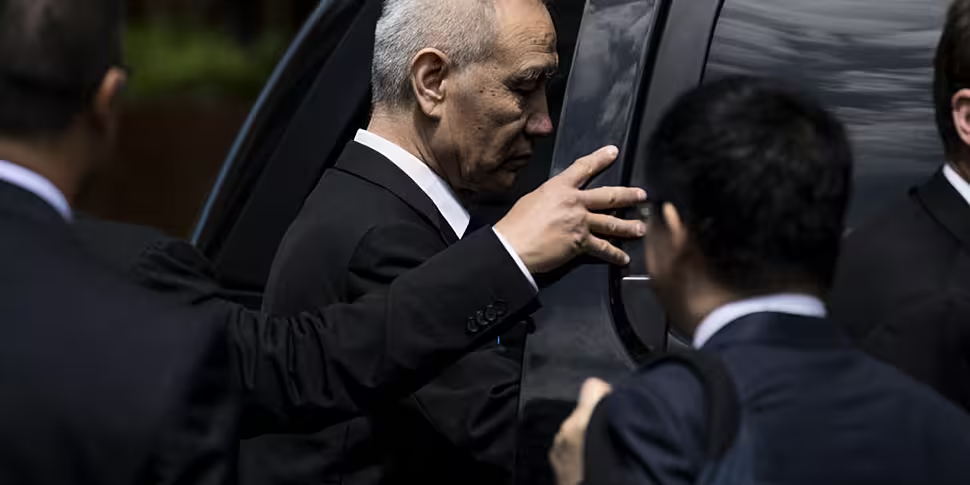Trade talks between the United States and China ended on Friday without a deal.
Two days of discussions concluded on the same day the US increased tariffs on US$200bn (€178bn) of Chinese goods from 10% to 25%.
China is expected to hit back, prompting fears the 10-month trade war between the world's two largest economies could worsen.
US President Donald Trump has ordered his trade chief, Robert Lighthizer, to begin the process of imposing tariffs on the US$300bn (€267bn) remaining imports from China that have not already been targeted.
But Mr Lighthizer said a final decision has not been made on the new duties.
Mr Lighthizer, US Treasury Secretary Steven Mnuchin and Chinese Vice Premier Liu He spent just 90 minutes together in Washington DC on Friday.
But Mr Mnuchin insisted discussions had been "constructive", telling CNBC that future talks had not yet been scheduled.
Mr Trump, meanwhile, described the talks as "candid and constructive", adding that they would continue into the future.
His Twitter words prompted a slight recovery in US markets, which had been falling earlier in the day.
The Dow Jones Industrial Average rose 114 points, or 0.4% while the Nasdaq edged up six points, or 0.1%, to 7,916.
On the Chinese side, Mr Liu said the talks had gone "fairly well", according to Bloomberg.
Mr Trump has often described China's trade practices as "unfair" and has put protectionist policies at the centre of his 'America First' agenda.
He said earlier in the day on Twitter that he was in "absolutely no rush" to reach a deal with the Chinese, adding: "Tariffs will bring in FAR MORE wealth to our country than even a phenomenal deal of the traditional kind."
The US president has tried to persuade Americans that China will absorb the cost of the tariffs - but US businesses are more likely to pass the cost on to consumers.
US corporate lobby group Business Roundtable said it was "deeply concerned" that the tariffs would hurt the US economy and called for a final agreement that would "take tariffs down".
Main image: Chinese Vice Premier Liu He departs the Office of the United States Trade Representative in Washington | Image: Andrew Harnik/AP/Press Association Images









